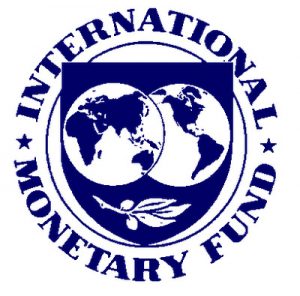IMF Releases the 2020 Financial Access Survey Results

On November 9, 2020, the International Monetary Fund (IMF) released the results of the eleventh annual Financial Access Survey (FAS) . [1] The FAS provides a unique supply-side database on access to and use of financial services covering 189 jurisdictions, with more than 100 series and historical data from 2004. The FAS data allow policymakers to measure and track the progress made in financial access and benchmark it against that of peers.
The 2020 round offers a pre-pandemic snapshot of the levels of financial access The current round of the FAS provides a pre-pandemic snapshot of the levels of financial access to both traditional and digital financial services. Overall, access to and usage of financial services, as measured by the FAS indicators has deepened over time in low- and middle-income economies.
While the number of ATMs per 100,000 adults has grown for the past few years, the number of commercial bank branches has remained relatively stable at the 2013 level. These trends likely reflect the recent rise of non-branch retail agent outlets and digital financial services—such as mobile money and mobile and internet banking—which continue to play a significant role in advancing financial access especially in low- and middle-income countries. Notwithstanding this progress, challenges of access remain.
Notably, women and small and medium-sized enterprises (SME) have often been excluded from the financial system. Data from the FAS suggest that progress made in closing the financial access gender gap varies across countries with microfinance institutions playing an important role in satisfying the unmet demands of financial services for women in some economies. Lending to SMEs continues to be constrained.
Financial Access COVID-19 Policy Tracker was launched to complement FAS data collection To supplement country authorities’ efforts to support financial access during the pandemic, the IMF developed a Financial Access COVID-19 Policy Tracker , which documents policy measures implemented to facilitate financing for SMEs and the use of digital financial services across the world. The Policy Tracker aims at facilitating information exchange and peer learning among country authorities about the measures related to SME finance and greater use of digital financial services in the current pandemic context.
Countries responded with measures to support SME financing during the COVID-19 pandemic Social distancing measures in place during the COVID-19 pandemic are expected to significantly impact SMEs, which account for 90 percent of businesses and 50 percent of employment worldwide. In response, country authorities have put in place measures to help SMEs weather the current pandemic.
The measures documented by the Policy Tracker have been classified into five categories: (i) debt moratoriums, (ii) loan guarantees, (iii) lower interest rates, (iv) tax relief, and (v) financial assistance. Key policy responses to aid SME finance during the COVID-19 pandemic See figure attached.
Source: Financial Access COVID-19 Policy Tracker, IMF. Note: The list of countries in the figure above is only a subset of those included in the tracker. Country examples are for illustration purposes only.
[bsa_pro_ad_space id=1]
Digital financial services provide opportunities in the pandemic context but also pose risks Digital financial services, both mobile money and mobile and internet banking, have two key features—high market penetration and minimal physical contact to transact—that support undisrupted financial transactions during the current pandemic. In addition, country authorities across the globe have enacted emergency measures to encourage the use of digital financial services.
These measures, also documented in the Policy Tracker, can be classified into four broad categories: (i) person-to-person (P2P) transaction fee cuts; (ii) increased balance and transaction limits; (iii) easing of know your customer (KYC) requirements; and (iv) simplified transaction processes. Bazarbash et al. (2020) discuss the COVID-19 response measures related to mobile money and its associated risks in a recent IMF Special Series Note on COVID-19. The next round of FAS data collection—scheduled to start in March 2021—may help provide useful insights on the impact of the COVID-19 pandemic on financial access and use.



















